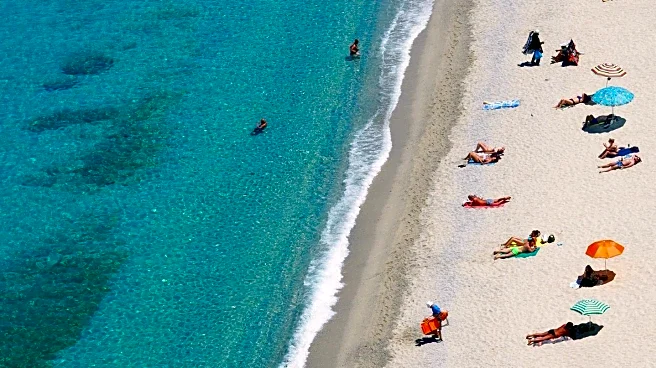What's Happening?
In several European tourist destinations, local residents have been protesting against the impact of mass tourism on their communities. These protests, which have grown in size and organization, focus on issues such as overcrowding, the environmental impact of cruise ships, and the effect of short-term rental platforms like Airbnb on local housing markets. The protests have been particularly prominent in areas like the Canaries, Balearics, Barcelona, Lisbon, Venice, and Milan. Local authorities are under pressure to address these concerns while balancing the economic benefits tourism brings.
Why It's Important?
The protests underscore a growing tension between the economic benefits of tourism and the quality of life for local residents. As tourism contributes significantly to the GDP of many regions, any reduction in visitor numbers could have economic repercussions. However, unchecked tourism can lead to housing shortages and increased living costs for locals. The situation calls for a strategic approach to tourism management that considers both economic and social impacts. This issue is relevant to U.S. cities facing similar challenges with tourism and short-term rentals.
What's Next?
Governments and local authorities are likely to implement stricter regulations on short-term rentals and cruise ship operations to mitigate the negative impacts of tourism. This could include licensing requirements for rental properties and limits on the size and number of cruise ships allowed in certain areas. The hospitality industry may need to adapt by promoting more sustainable tourism practices and working with local communities to find a balance that benefits both residents and visitors.










